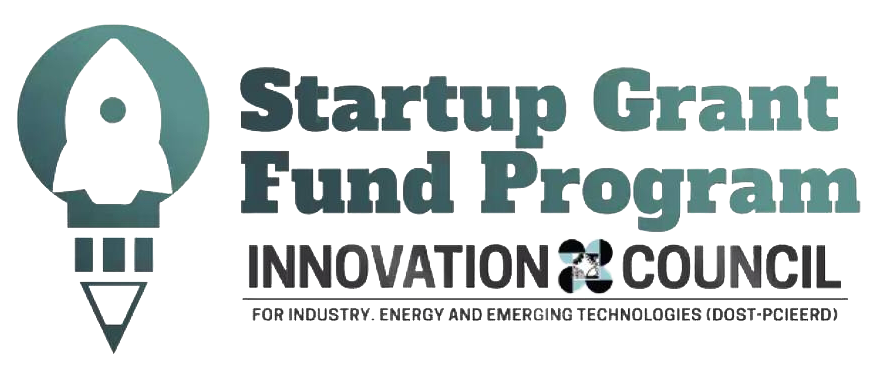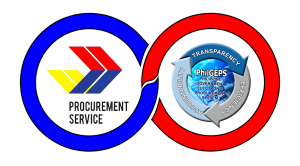In the bustling world of eCommerce, trust is the currency that drives transactions. As consumers navigate the vast landscape of online shopping, they seek reassurance that the platforms they engage with are reliable, secure, and trustworthy. In the Philippines, where eCommerce is rapidly expanding, the need for such trust is more pronounced than ever. In this article, we’ll keep you up to date with the latest DTI development of eCommerce Trustmark in the Philippines.

What is an eCommerce Trustmark?
A symbol or label that appears on an eCommerce website to signify that a reliable third-party organization has validated the site is called an eCommerce Trustmark. These trust marks act as visual cues to customers about the validity, security, and dependability of the online retailer.
Where do eCommerce Trustmarks come from?
Trustmarks are usually granted by consumer protection authorities, industry groups, or cybersecurity companies following a thorough evaluation of the eCommerce website’s security protocols, privacy guidelines, customer service standards, and compliance with industry rules.
Depending on the company awarding the Trustmark, the requirements may change, but they usually center on elements that help customers have a safe and satisfying online experience. Trustmarks are essential for fostering consumer confidence and trust in the eCommerce platform.
Why are eCommerce Trustmarks important?
When a website prominently displays a distinctive Trustmark emblem, it helps allay worries about potential hazards like fraud, identity theft, or subpar product quality. As a result, by promoting a safer and more reliable online marketplace, trust marks have the power to significantly impact consumers’ decisions to make purchases online and support the expansion of eCommerce as a whole.
Understanding the Need for an eCommerce Trustmark
E-commerce has become a vital aspect of daily living in the current digital era, providing consumers with accessibility and convenience. However, as online transactions become more common, there is a greater chance of fraud and fraud. Having acknowledged this difficulty, the Philippine Department of Trade and Industry (DTI) proactively protects customers by creating an eCommerce Trustmark.
The Role of Government Initiatives in Consumer Protection
The government’s larger initiatives to safeguard shoppers in the digital marketplace are in line with the DTI’s plan to create an eCommerce Trustmark. The Internet Transactions Act (ITA), also known as Republic Act 11967, emphasizes how crucial it is to regulate online transactions in order to protect consumer welfare and security. The goal of the government’s implementation of laws like the creation of an eCommerce Trustmark is to reduce risks and boost customer confidence in online buying.
Key Objectives of the eCommerce Trustmark
The principal aim of the eCommerce trustmark is to furnish customers with a dependable gauge of credibility during virtual transactions. eCommerce platforms demonstrate their adherence to industry standards, safeguarding customer interests, and upholding ethical business practices by putting a Trustmark on their websites. This openness promotes trust and enables customers to make wise choices when they shop online.
Drafting the Implementing Rules and Regulations
A portion of the proposed Republic Act 11967 implementing rules and regulations includes the creation of the eCommerce Trustmark. The criteria and conditions for eCommerce platforms to obtain and display the Trustmark are outlined in these rules and regulations. The assessment process will likely contain customer service standards, privacy policies, data security measures, and compliance with applicable laws and regulations.
Implications for Consumer Confidence and The eCommerce Trustmark
The Philippines’ businesses and consumers will be greatly impacted by the implementation of an eCommerce Trustmark. Customers are more confident in eCommerce transactions because Trustmark gives them a sense of security and certainty while making purchases online.
However, companies who receive the trust show that they are dedicated to upholding integrity and consumer happiness, which can improve their standing and competitiveness in the online market.
Internet Transactions Act (ITA) and the eCommerce Trustmark
The Internet Transactions Act (ITA), which President Marcos signed into law last December 2023, is a significant turning point in Philippine eCommerce regulation. The ITA establishes a thorough regulatory framework with the primary goal of fostering trust in online transactions while protecting the interests of both merchants and customers.
Public Response Regarding the ITA
The Department of Trade and Industry (DTI) is presently accepting public comments on the proposed rules through March 12 in accordance with the ITA’s objectives. The government’s commitment to openness and stakeholder participation in the regulatory process is emphasized by this inclusive approach.
Timeline for Completion
The DTI has set an ambitious aim to complete the Implementing Rules and Regulations (IRR) in 90 days, ending on March 19, according to Trade Undersecretary Mary Jean Pacheco. This accelerated schedule illustrates how urgently the government wants to put in place a strong regulatory framework to assist the rapidly expanding eCommerce industry.
Empowering Consumers with Accessible Information
The DTI’s eCommerce bureau’s construction of an online company database is essential to the ITA’s mission. This database will be a useful tool, giving both consumers and government organizations access to thorough data about companies that are active in the digital marketplace. The objective of this program is to enable customers to make knowledgeable decisions about their online transactions by encouraging openness and responsibility.
Collaboration with the Private Sector for Trustmark Development
The ITA requires the DTI to collaborate closely with the business sector in order to build an eCommerce Trustmark, recognizing the value of teamwork. By involving industry stakeholders in the development of the trust mark’s criteria and standards, this collaborative approach improves the trust mark’s effectiveness and legitimacy in fostering consumer confidence.
Strengthening Consumer Protection with a Complaint Tracking System
The ITA places a strong emphasis on reactive tactics in addition to proactive ones for consumer protection. The government’s dedication to promptly and efficiently resolving consumer complaints is evidenced by the creation of an online consumer complaint monitoring system that is actively monitored by the Department of Trade and Industry (DTI). This approach encourages accountability and justice in the eCommerce ecosystem while acting as a deterrent to unethical business practices.
Setting Liabilities and Penalties for Online Merchants and Platform Violators
Clear principles for the responsibilities of different parties participating in online transactions are established by RA 11967. The law outlines particular duties and obligations for digital platforms, e-marketplaces, e-retailers, and online merchants.
In addition, the law enforces sanctions for noncompliance, guaranteeing responsibility and discouraging illicit actions in virtual environments. The goal of RA 11967 is to promote a more open, moral, and safe environment for eCommerce in the Philippines by outlining explicit expectations and repercussions.
Implementations with regard to Violations
The main goal of RA 11967 is to guarantee that the law is followed by providing enforcement tools. If an online seller or brand is determined to be in breach of regulations, the DTI has the authority to request its removal, subpoena individuals or organizations for inquiry, and issue compliance orders against violators.
To protect consumer interests and encourage fair competition in the digital marketplace, the DTI also has the power to place online companies that consistently engage in illegal activity on a blacklist. The DTI now has the necessary tools to enforce compliance and deal with infractions effectively, thanks to its enlarged mandate.

To sum up, the Department of Trade and Industry’s creation of an eCommerce Trustmark is a big step in the right direction toward making the Philippines’ digital economy safer and more reliable. The government is creating an eCommerce environment that is safe, open, and advantageous to companies and customers alike by adopting explicit rules and regulations for online transactions. Initiatives like the eCommerce Trustmark are vital in supporting consumer safety and long-term, sustainable growth in online commerce as the eCommerce landscape changes.









